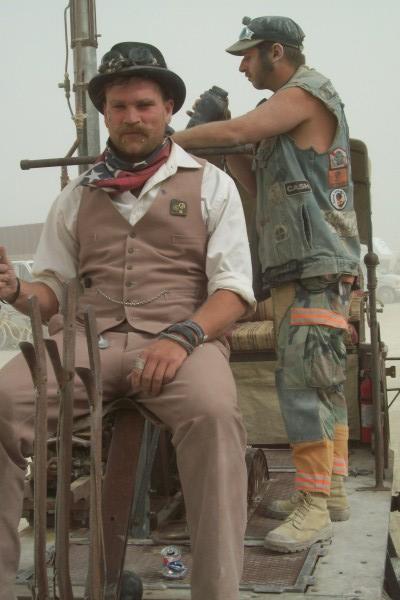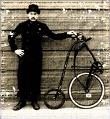Upon reaching Hood River, OR, we turned left, crossed the Columbia, and began driving uphill. We passed orchards and llama farms, and stopped in BZ Corner at the Logs restaurant, which happened to be the closest place that Doobie could go to watch television. It was populated by the typical residents of the area: Migrant workers and burly woodsman types. I’m sure it would take years for me to truly understand the culture, but it seemed an interesting mix of the best parts of redneck and hippie culture. Everything about the towns and people betrayed a love for the earth but without the aversion to hard work, and a love of personal freedom but without the disgust for things granola. I’ve only ever observed this blending of redneck/hippie in the remoter areas of Ohio and Kentucky. I dined on fried gizzards and some sort of oyster sandwich, and we headed on our way.
Doobie and Green live behind the Ranger’s Station in the Gifford Pinchot National Forest at the edges of Trout Lake, Washington. The Northwest Service Academy they work for is a branch of the Americorps. They have three dorms there, a dining hall, and a commons area. Behind them are countless acres of wilderness. Ten miles to the north is Mount Adams, which people kept speaking of as if it were the moon, saying, “Is the mountain out today?” It was not out, as it was pouring down rain and continued to do so through the next day.
Thirty-two young men and women live and work together there, and it seemed a tight-knit family. Some were definitely wary of this intruder into their circle, but most were very overtly friendly. All the men had beards, and half had dreadlocks. They all dressed in a very utilitarian manner, as they spent each day working on trails and such in the surrounding areas. They were divided up into teams- the fish team concentrated mainly on helping the salmon population, for example, and my brother’s forest service team did things like remove invasive species. Each month, they had to stay home from work for a day to cook for the others, a day to clean the commons, a day to maintain the fleet of vehicles, and a day to maintain the tools they used. Bear in mind that I’m explaining their work and responsibilities to the best of my understanding, but they had so many tasks and jobs that it was hard to remember it all.
What struck me immediately was the motivation these people had for their work. It was the only job situation I’ve ever observed where love for the work was the primary motivator. It seemed that the harder the task, the more it was coveted as a job to do. They operated with very little supervision- when I went out with them there was nobody supervising- and it seemed there was no trace whatsoever of slack. It took me a while to figure out how they made sure that everybody did their share, until I realized that none of them would be there if they didn’t love working outdoors.
The night we arrived, some of them were doing crafts, so we sat down and made some envelopes out of scrap paper. The commons had a pool table, ping-pong, and foosball, as well as a large video library and a playstation. Other things folks did in their free time included going down to Portland for concerts and the outdoor activities you’d expect- cross-country skiing, hiking, even tree-climbing.
Alcohol wasn’t allowed on the premises, so we walked five minutes beyond the fence to a fort my brother and a friend had rigged up, it was an alternate fire circle to the usual one with a little roof over it for use during the ever-present rain. We had a few drinks, a bit of the Pacific Northwest’s finest herb (legendary among stoners), and talked into the night while the coyotes howled as if they were partying just beyond the next ridge.
My brother is what you call an “old soul”, and at some point he ceased being my younger brother and became my older one. He would rather be fishing than doing anything else. He never talks unless he has something to say, a quality that I lack severely. He knows four names for every tree, flower, bird, or animal: The scientific name, two colloquial names, and the name your grandparents would have called it. He also knows what can be eaten to survive, what tastes delicious, what makes good toilet paper, and what trees will yield bait worms in their fruits or bark. Green showed me a berry that will make a good laxative, for example, and Doobie showed me not one but two plants that make excellent toilet paper.
That night we slept the sleep of the jet lagged, and woke up the next day as the sun rose, ready for adventure.
 The Steampunk World
The Steampunk World


0 Comments:
Post a Comment
<< Home